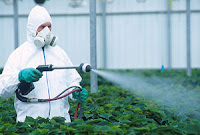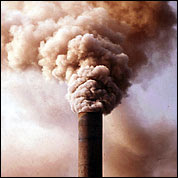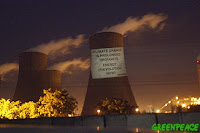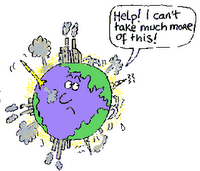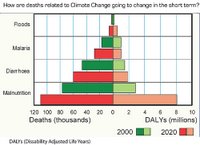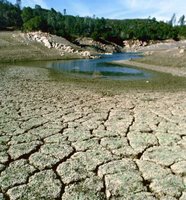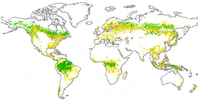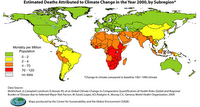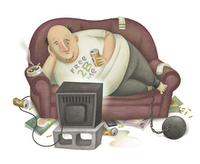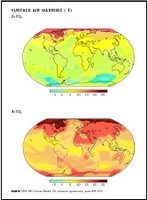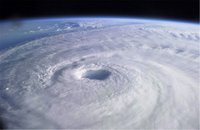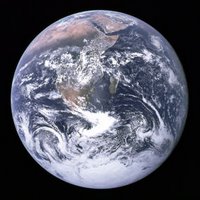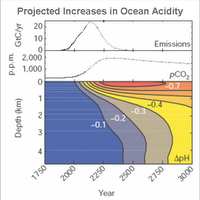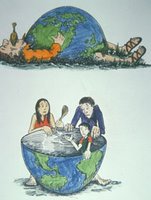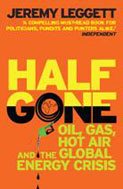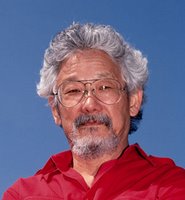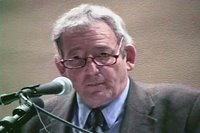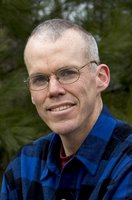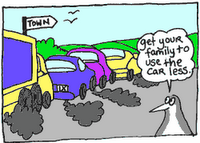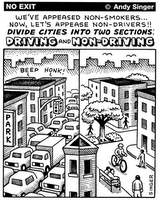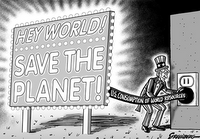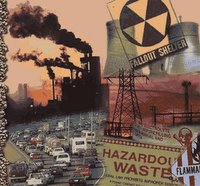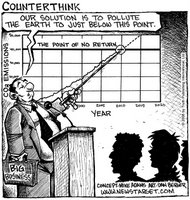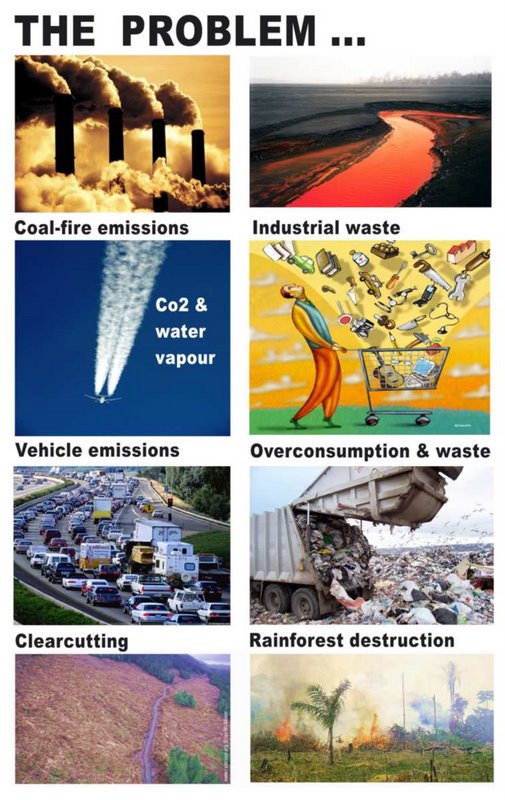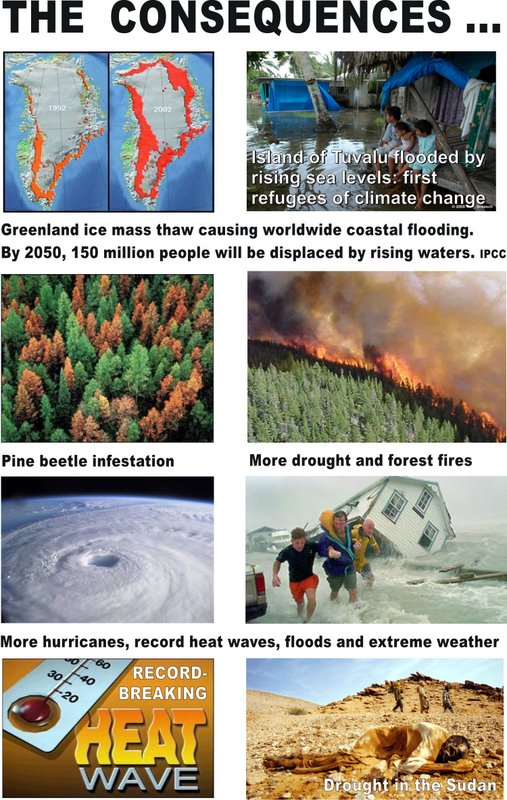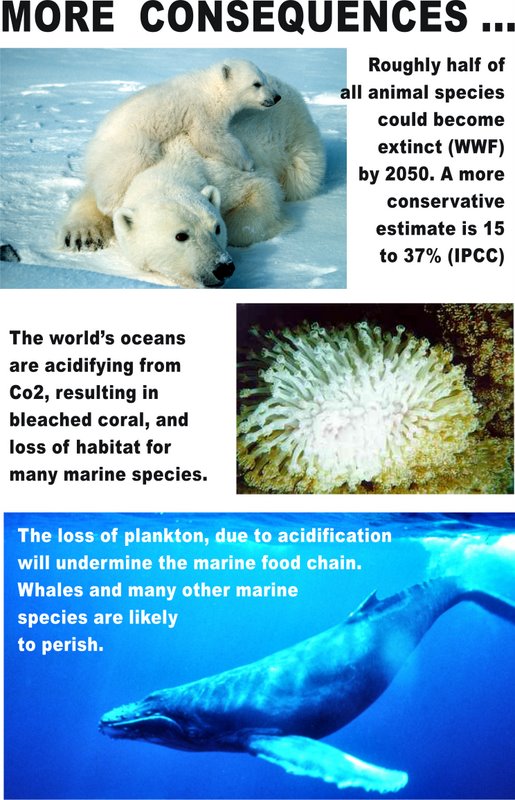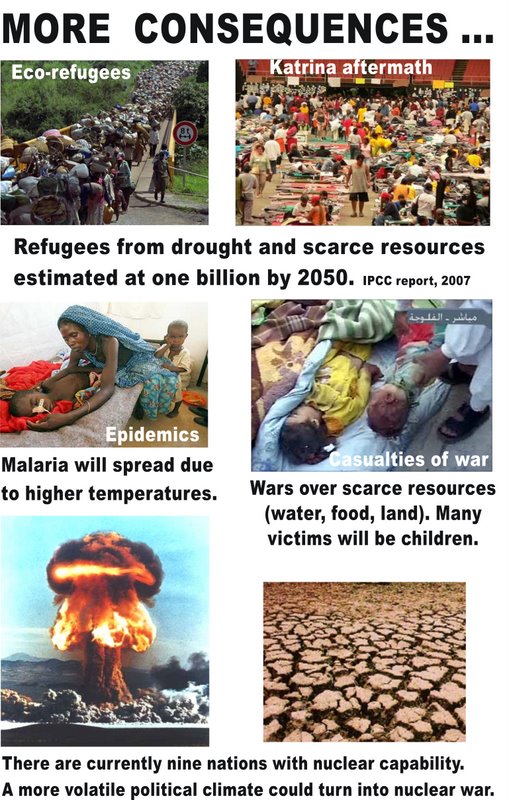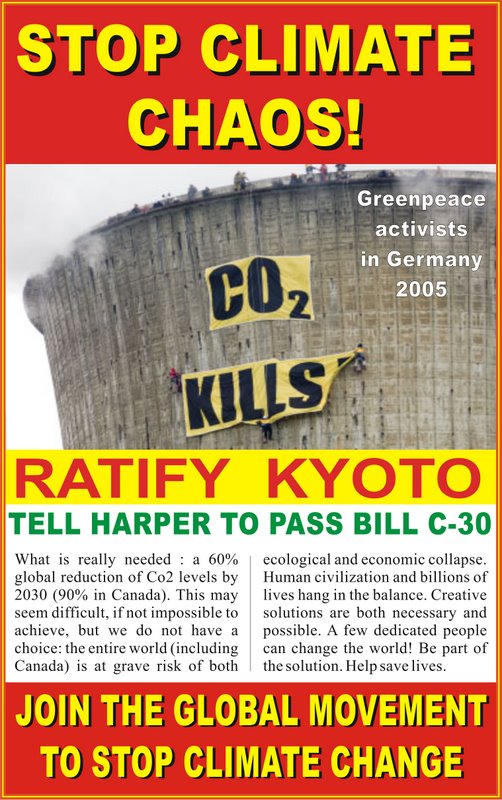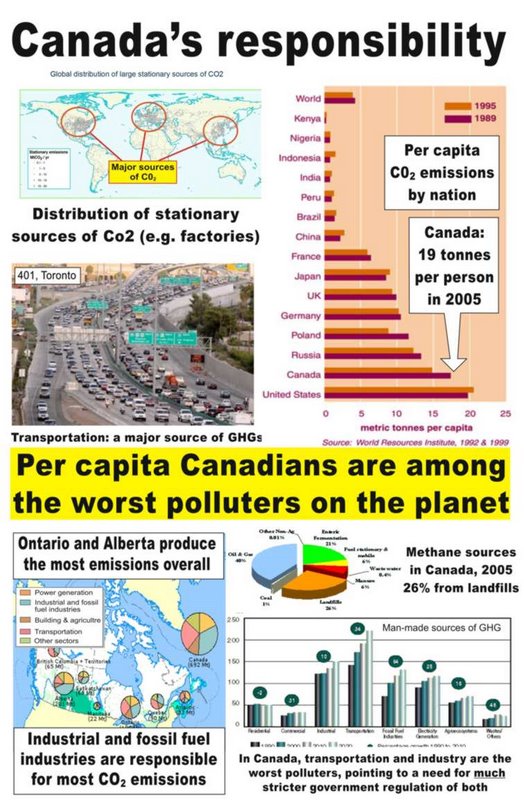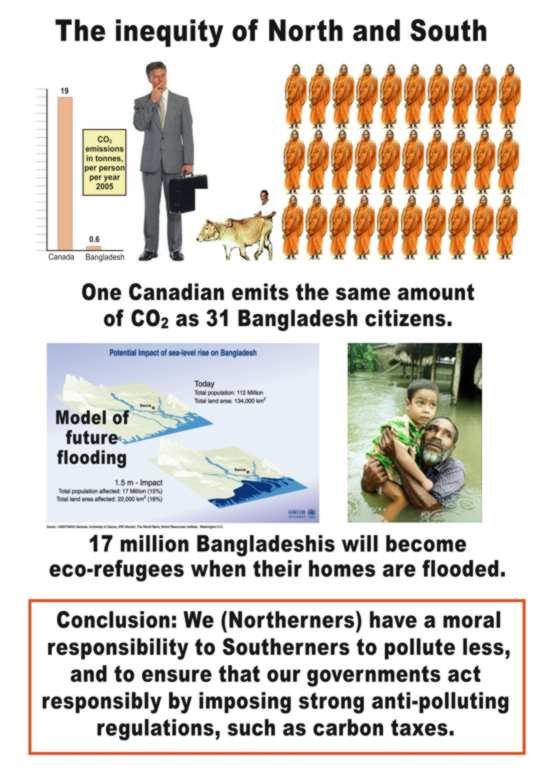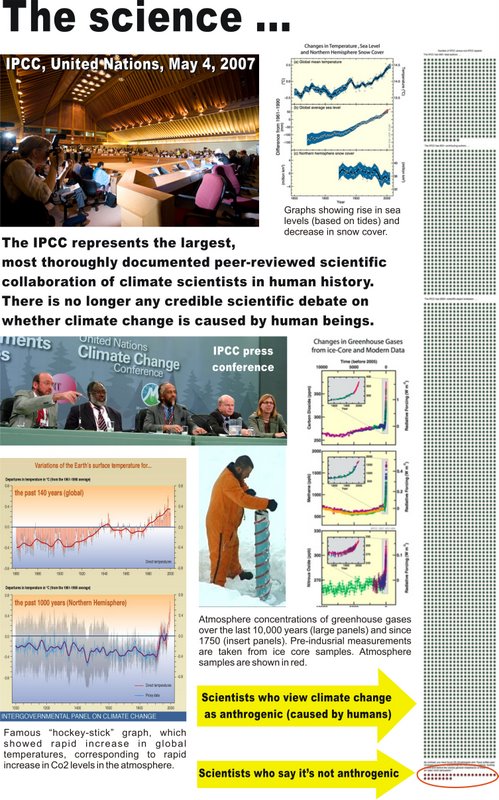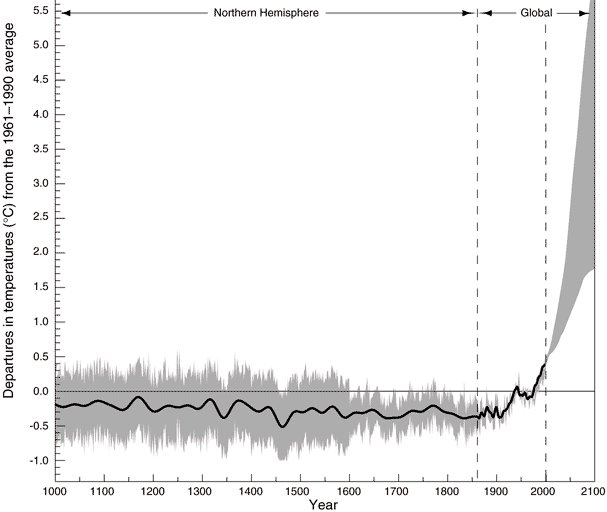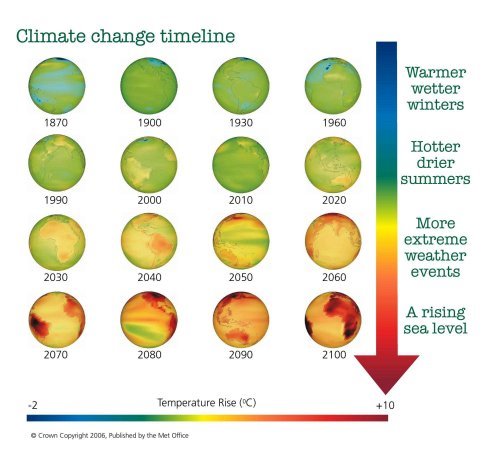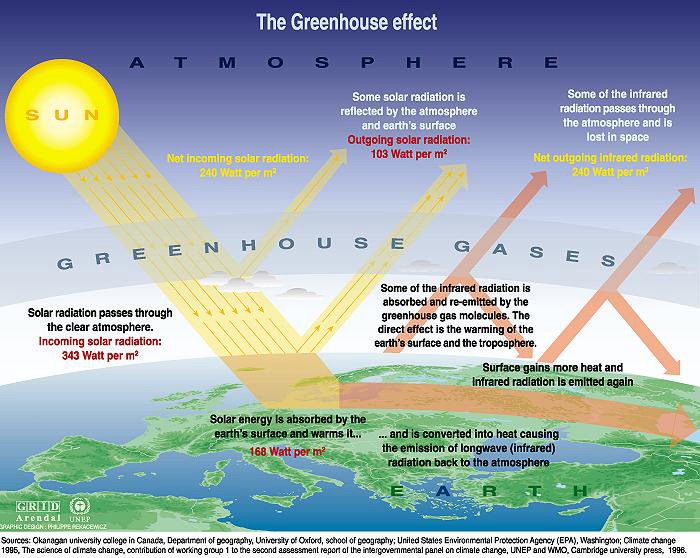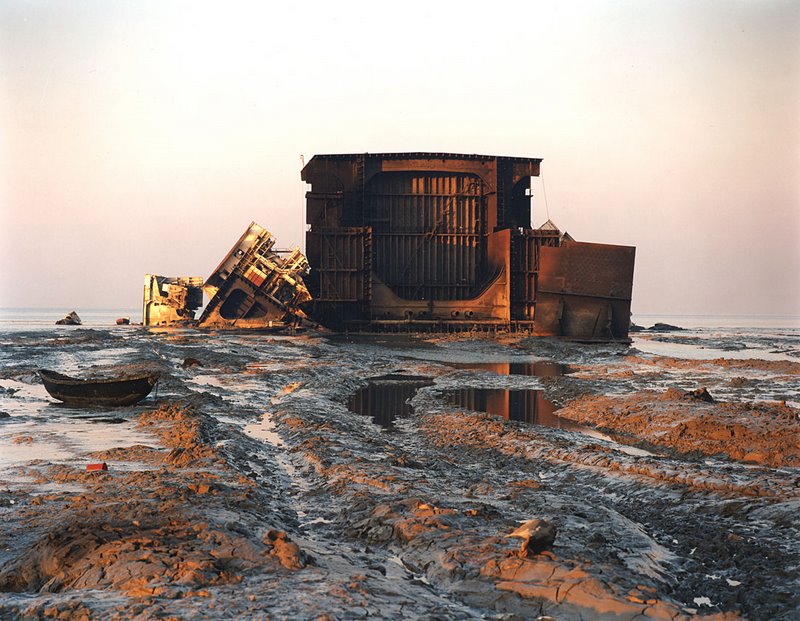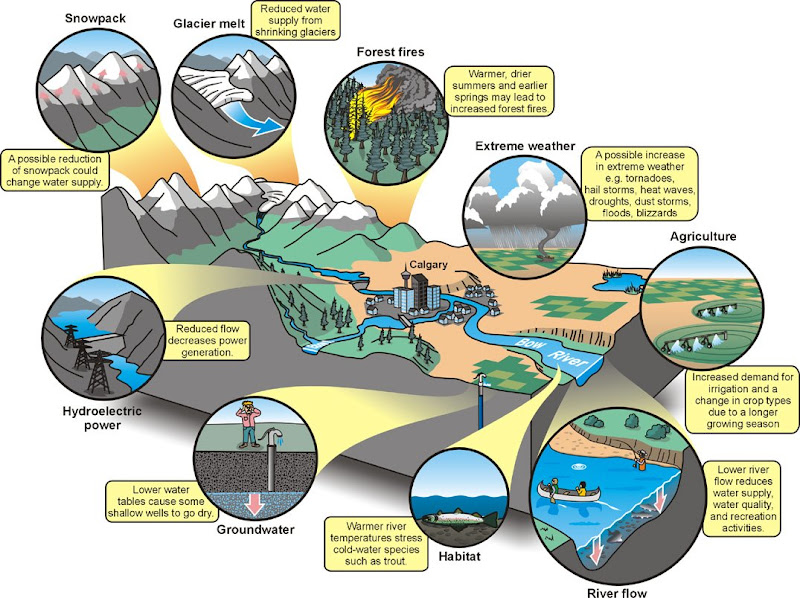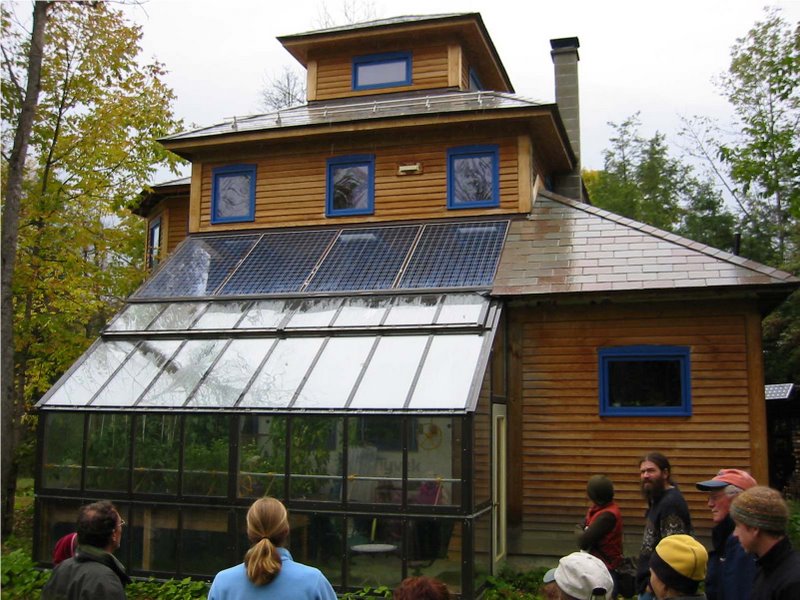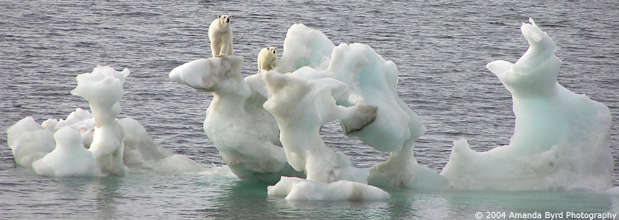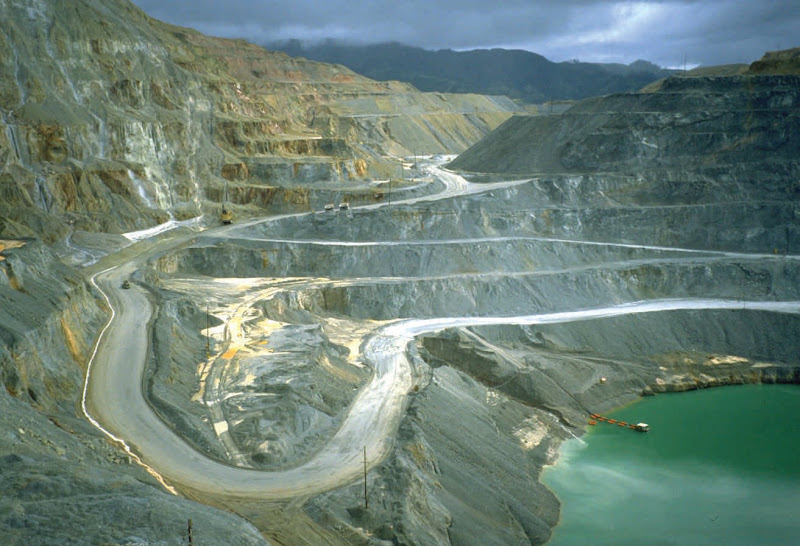Saturday, January 19, 2008
The Environmental Philosophy
Email: climate-change@hotmail.com * Tel: 647-342-7995
The environmental philosophy is described by distinguished biologist Edward O. Wilson:
"Environmentalism sees humanity as a biological species tightly dependent on the natural world. As formidable as our intellect may be and as fierce our spirit, those qualities are not enough to free us from the constraints of the natural environment in which our human ancestors evolved. We cannot draw confidence from successful solutions to the smaller problems of the past . . .
“Natural ecosystems, the wellsprings of a healthful environment, are being irreversibly degraded [despite the fact that] human physical and spiritual health depends on sustaining the planet in a relatively unaltered state.
"Earth is our home in the full, genetic sense, where humanity and its ancestors existed for all the millions of years of their evolution. Natural ecosystems, forests, coral reefs, marine blue waters maintain the world exactly as we would wish it to be maintained.
"When we debase the global environment and extinguish the variety of life, we are dismantling a support system that is too complex to understand, let alone replace, in the foreseeable future." (See E. O. Wilson. "Is Humanity Suicidal?" New York Times Magazine May 30 1993).
A true environmental philosophy is not opposed to human interests because human beings are part of the natural world. It is in the best interests of human beings to reproduce less, consume less, and live sustainably.
Those who advocate more consumption are de facto opposed to the true interests of humanity because more consumption of unecessary goods is already destroying the lives of millions and as the climate crisis worsens will kill billions.
Environmental activism is motivated by an ethical concern for current and future generations of human beings, as well as for non-human life forms. It entails the moral imperative to engage in or support political activism to lobby for better governmental policies, including carbon taxes; limiting emissions; ending wasteful resource extraction, phasing out fossil fuel use; mandatory energy efficiency retrofits; stimulating local food and energy production; ending unnecessary air travel; and phasing out car culture.
Students Against Climate Change opposes the following: greenwash (disingenuous claims to be green); climate change denial and skepticism (promoted by the fossil fuel industry); destruction of the natural world through extraction industries (e.g. mining, forestry), habitat destruction and the waste caused by over-consumption (e.g. e-waste); profligate fossil fuel consumption; foreign oil wars; the tar sands; factory farming; corporations (such as Imperial Oil) that contribute to these problems and governments (e.g. the Canadian federal government) that facilitate this destruction and waste.
We envision an ethical global community in which social justice and respect for the natural world (which includes both human and non-human life) is the norm. This can be achieved through the creation of local bioregional communities which abandon wasteful consumption patterns and energy use.
We must collectively strive towards the ideal (and necessity) of energy and food independence. This is not a choice; it is a necessity for human survival. These communities can be either urban or rural. In an urban setting they include green rooftops, geothermal units, and solar panels.
People who live in cities and suburbs will have to grow their own food and create their own energy; if they don't they will die. We should start doing this today, right now - using the cheap energy we now command to create the windmills and solar panels needed for power in the future.
We are instead using that energy for war, cars, buildings that waste energy, and the production and consumption of useless disposable goods. Humanity is commiting suicide. We need to wake up. Students have the opportunity to create change; right now they are a sleeping giant. Most students fly around the world, buy electronic goods and rack up credit card bills.
This club is a vehicle for students to opt out of this madness and become truly responsible, both personally and politically. Wilson says that future generations will never forgive us if we do not take this seriously enough to effect real change.
The environmental philosophy is described by distinguished biologist Edward O. Wilson:
"Environmentalism sees humanity as a biological species tightly dependent on the natural world. As formidable as our intellect may be and as fierce our spirit, those qualities are not enough to free us from the constraints of the natural environment in which our human ancestors evolved. We cannot draw confidence from successful solutions to the smaller problems of the past . . .
“Natural ecosystems, the wellsprings of a healthful environment, are being irreversibly degraded [despite the fact that] human physical and spiritual health depends on sustaining the planet in a relatively unaltered state.
"Earth is our home in the full, genetic sense, where humanity and its ancestors existed for all the millions of years of their evolution. Natural ecosystems, forests, coral reefs, marine blue waters maintain the world exactly as we would wish it to be maintained.
"When we debase the global environment and extinguish the variety of life, we are dismantling a support system that is too complex to understand, let alone replace, in the foreseeable future." (See E. O. Wilson. "Is Humanity Suicidal?" New York Times Magazine May 30 1993).
A true environmental philosophy is not opposed to human interests because human beings are part of the natural world. It is in the best interests of human beings to reproduce less, consume less, and live sustainably.
Those who advocate more consumption are de facto opposed to the true interests of humanity because more consumption of unecessary goods is already destroying the lives of millions and as the climate crisis worsens will kill billions.
Environmental activism is motivated by an ethical concern for current and future generations of human beings, as well as for non-human life forms. It entails the moral imperative to engage in or support political activism to lobby for better governmental policies, including carbon taxes; limiting emissions; ending wasteful resource extraction, phasing out fossil fuel use; mandatory energy efficiency retrofits; stimulating local food and energy production; ending unnecessary air travel; and phasing out car culture.
Students Against Climate Change opposes the following: greenwash (disingenuous claims to be green); climate change denial and skepticism (promoted by the fossil fuel industry); destruction of the natural world through extraction industries (e.g. mining, forestry), habitat destruction and the waste caused by over-consumption (e.g. e-waste); profligate fossil fuel consumption; foreign oil wars; the tar sands; factory farming; corporations (such as Imperial Oil) that contribute to these problems and governments (e.g. the Canadian federal government) that facilitate this destruction and waste.
We envision an ethical global community in which social justice and respect for the natural world (which includes both human and non-human life) is the norm. This can be achieved through the creation of local bioregional communities which abandon wasteful consumption patterns and energy use.
We must collectively strive towards the ideal (and necessity) of energy and food independence. This is not a choice; it is a necessity for human survival. These communities can be either urban or rural. In an urban setting they include green rooftops, geothermal units, and solar panels.
People who live in cities and suburbs will have to grow their own food and create their own energy; if they don't they will die. We should start doing this today, right now - using the cheap energy we now command to create the windmills and solar panels needed for power in the future.
We are instead using that energy for war, cars, buildings that waste energy, and the production and consumption of useless disposable goods. Humanity is commiting suicide. We need to wake up. Students have the opportunity to create change; right now they are a sleeping giant. Most students fly around the world, buy electronic goods and rack up credit card bills.
This club is a vehicle for students to opt out of this madness and become truly responsible, both personally and politically. Wilson says that future generations will never forgive us if we do not take this seriously enough to effect real change.
Subscribe to:
Comments (Atom)

























































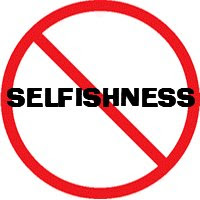












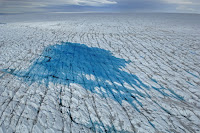




















































































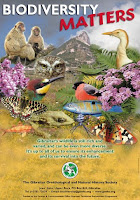

























































































.jpg)




















